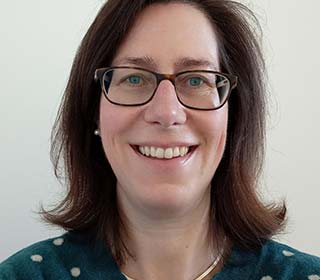MA Education
Study in either Plymouth or Truro for this Masters degree. Research your area of interest within education and apply your findings to benefit your organisation, and enhance your career progression. Delivered part-time to support working professionals (Saturday and evening sessions).

Find out more about Marjon University Cornwall.
Marjon University CornwallEntry requirements
An undergraduate degree is usually required, however admission on the grounds of experience is considered for highly experienced applicants
Accreditation of prior, certificated learning can be given for up to 90 credits for relevant Masters' study undertaken within the last five years
UCAS code Apply to Marjon
UCAS institution code P63
Duration One year full-time or two years part-time
Any questions about postgraduate study at Marjon?
Contact Rachel Bailey-Lewis, our Student Recruitment Officer (Postgraduate).
Course Summary
Our MA Education provides opportunities for practitioners across a wide range of contexts to research and apply theory to practice in order to drive improvements in their current professional settings. The course offers flexibility for busy professionals to engage in postgraduate study. It can be studied either part-time or full-time at our Plymouth campus or part-time at our Marjon University Cornwall in Truro to fit in with professional and family commitments.
Our MA Education is taught in partnership with Teaching School Alliances, Multi-Academy Trusts, SCITT partners, Diocesan offices, military, health, sport, outdoor education, local authorities and a wide range of other employers and organisations throughout the South-West and beyond.
The course ethos is informed, first and foremost, by a renowned student-centred approach focusing on developing and enhancing professionals’ practice and specific subject expertise, which allows you to identify your own research focus.
Why this course at Marjon?
An individual student-centred approach with outstanding support from a community of expert tutors
Flexible modules which enable students to develop their subject and research focus
Opportunities to join an inter-disciplinary Masters’ community for the sharing of innovative ideas and practice
Opportunities to study for MA Education, MA Education - Educational Leadership, MA Education - Coaching, Mentoring & Leadership or MA Education - Disability
A flexible and practice-centred approach developed to support the needs of busy professionals
Taught by highly experienced expert tutors
Modules for this course
1st Year
Independent study
Values-based education
Becoming a reflective practitioner
Research design
Dissertation
Current students say...
Rebecca Brewer
“The most enjoyable aspect of my course has to be the research I have been inspired to carry out: local schools have embraced the papers I have written and written policy based on recommendations I have made. It couldn’t be more fulfilling. I have looked at how schools and families best engage and the impact it can have, and how children’s characters are developed throughout their time at school. This MA has enabled me to gain deep insight into how I can add real value.”
This course is perfect if you’re curious about
How can I enhance my own subject expertise?
How do I develop research ideas to explore something that matters to me and/or my employer?
How can I enhance my own capacity for excellence as an educator?
How can I develop my critical writing skills at Masters’ level?
How do I publish my research to reach a wide professional community?
How can I use this as an opportunity to contribute to the organisation I am a part of?
See where our graduates are now
Emmanuel Rouve
“I use my Masters’ every day, specifically in the creation of a coaching culture within the School. I also using my knowledge and pedagogical practice to inform wider change in educational technologies. The findings of my research provided me with strong arguments to create an innovative culture and to create a Learning Lab. I am in no doubt that this initiative influenced my appointment as Director of the School of Apprenticeships.”
Emmanuel is the Director of the School of Apprenticeships for the French Navy.
John Blackmore
“The course allowed me to reflect on my classroom practice and consider how to address the barriers to learning faced by my students. My action research papers transformed the ways I broach certain skills, topics and modules with my students, while the breadth of my critical reading has made me more receptive to new teaching strategies. The MA has given me confidence to take new risks in the classroom and provided reassurance and direction in my pursuit to become an even better practitioner.”
Jon is Head of Faculty for English and Drama.
Pam Bryant
“My research looked at how to close the attainment gap between disadvantaged and non-disadvantaged learners within music, which involved trialling many different methods. This has enabled me to ensure that the gap remains very small within my classes. In turn I have been able to share this practice with the wider educational community, a skill which will stand me in good stead when I look to progress further in my career. I cannot wait to progress further by undertaking a Doctorate”.
Pam teaches music and drama.
What might you become?
In general terms, a Masters’ degree can enable career progression in a highly competitive market place and promote career mobility. Career opportunities will vary according to students’ fields of work, but holders of a Masters’ degree can expect to demonstrate highly flexible and transferable skills such as high levels of initiative, leadership of learning and mastery of a subject area. For example, previous graduates have progressed to County Advisor positions, middle leadership, school leadership and/or executive leadership positions.
How you’ll be taught and assessed?
How will you be taught?
The course is delivered to fit in with your work, through distance learning, focusing on 1:1 tutorials, practice-based conversations at your workplace, professional focus groups, Saturday workshops and occasional key-note lectures at our campuses in Plymouth or Truro. Hours per week vary depending on work, life and family commitments.
How will you be assessed?
The key assessment methodology is action research, taking the form of small practice-focused projects, a research proposal poster and a final-stage research dissertation. You'll use evaluative, investigative, and/or analytical methods to diagnose problems or weaknesses and to develop practical solutions to address them quickly and efficiently.
Fees and funding
Fees UK students: £8,000 per annum
Fees for International students: £14,500 per annum
This fee covers your tuition and access to course-specific equipment and facilities, as well associated services including access to the library, study skills support, IT support, student support and wellbeing services and membership of the Student Union. There may be additional costs by course.
Funding available for this course
Our Student Funding Advisors offer confidential and impartial advice about your funding options.
Learn moreLecturers
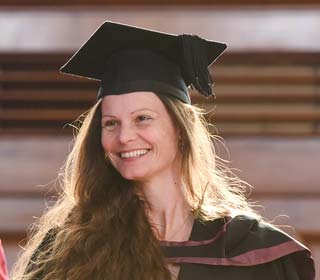
Marie has worked in Early Years and education for the past thirty years, working in various roles from manager to teaching assistant and with individuals who have special education needs. She is interested in policy, Early Years, active listening and children’s rights.

Kate specialises in Special Educational Needs and Disability. She is a Qualified Teacher of Children and Young People with Vision Impairment and worked across a range of mainstream and special school settings for 20 years.
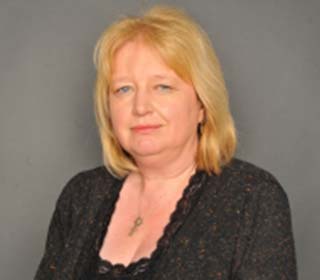
Jan was previously a primary head teacher in the South West and she now leads a teaching team at Marjon who together draw on decades of classroom experience and wide-ranging research specialisms to deliver Education courses.
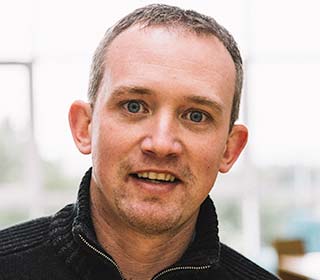
Jonathan's specialist area is disability studies. He is interested in viewing disability and impairment in terms of the way they impact on inclusion and much of his work is concerned with how social theory can be used to make sense of the lives of disabled people. Jonathan has an acquired brain injury so his work is influenced by direct experience of disability.
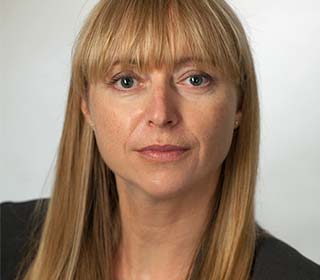
An innovative academic, Tanya’s research focus is on educational isolation of coastal, rural and small schools and the relationship with teacher development , teacher supply and educational improvement.
Tanya is currently supervising the following theses:
- Educational Isolation - composite indicator
- Early career teacher identity
- HE in FE Teacher identity
- Muslim parent school choices
- Pupil wellbeing and SATs
- Recovery conversations and pupils from persistently disadvantaged backgrounds.
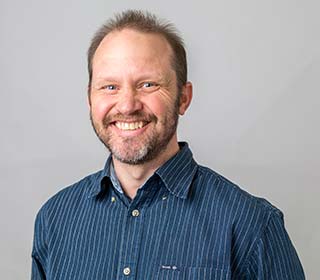
Miles has more than twenty years of experience teaching, including to adults and children. An experienced English Language and Primary School teacher, Miles is also a postgraduate researcher of children's curriculum experience.
More information
At the start of this course you will meet your university tutor at either our Plymouth or Truro campus to discuss your aims and preferred course pathway, as well as the most appropriate study timeline for you.
Pathways on this programme are:
- MA Education
- MA Education - Educational Leadership
- MA Education - Coaching, Mentoring and Leadership
- MA Education - Disability



